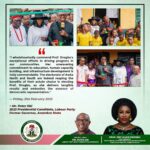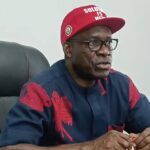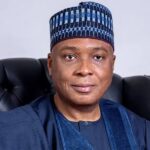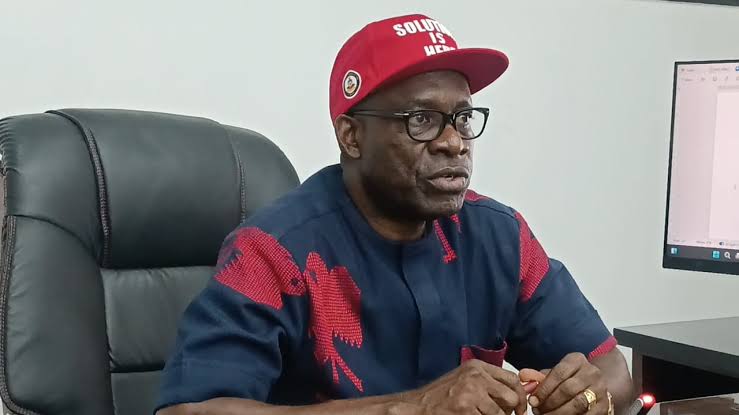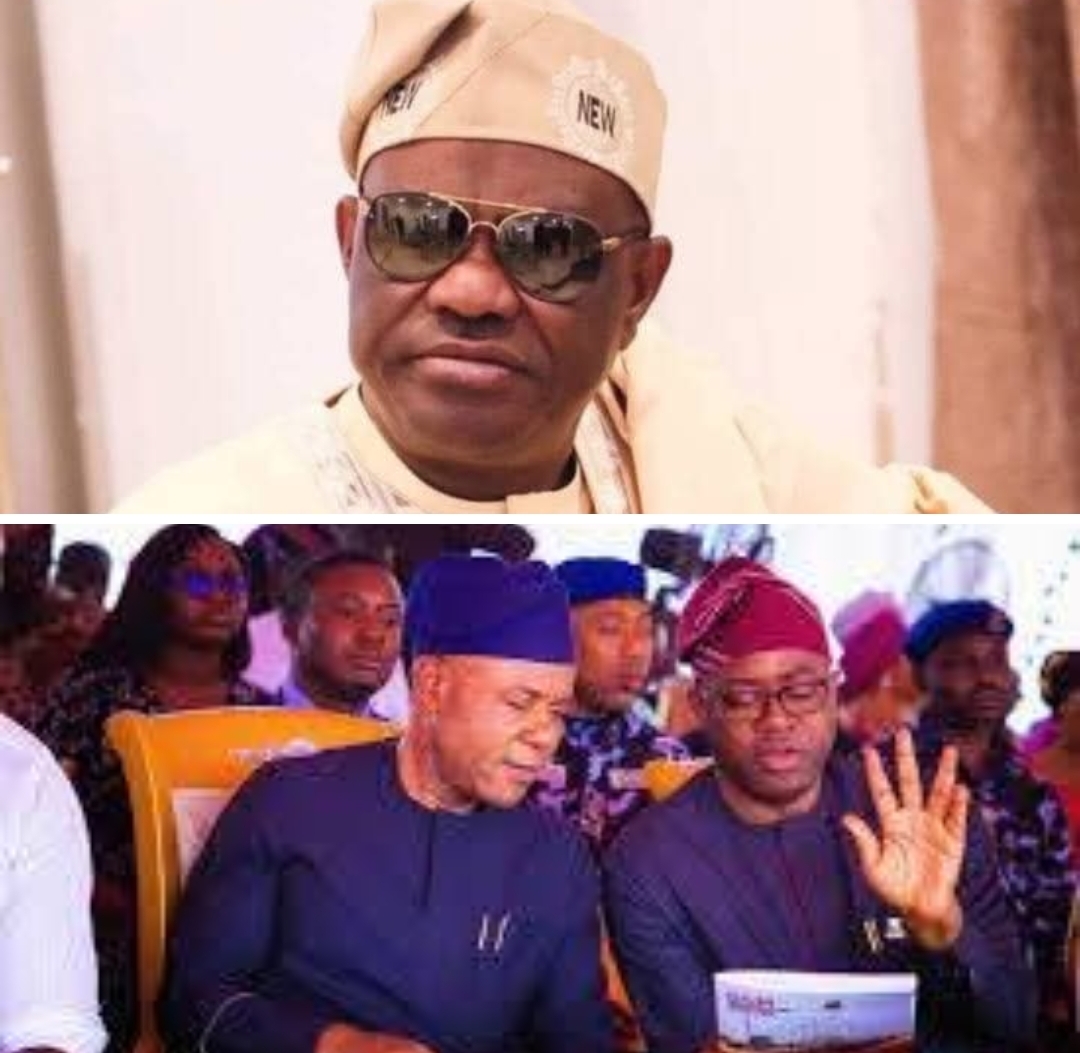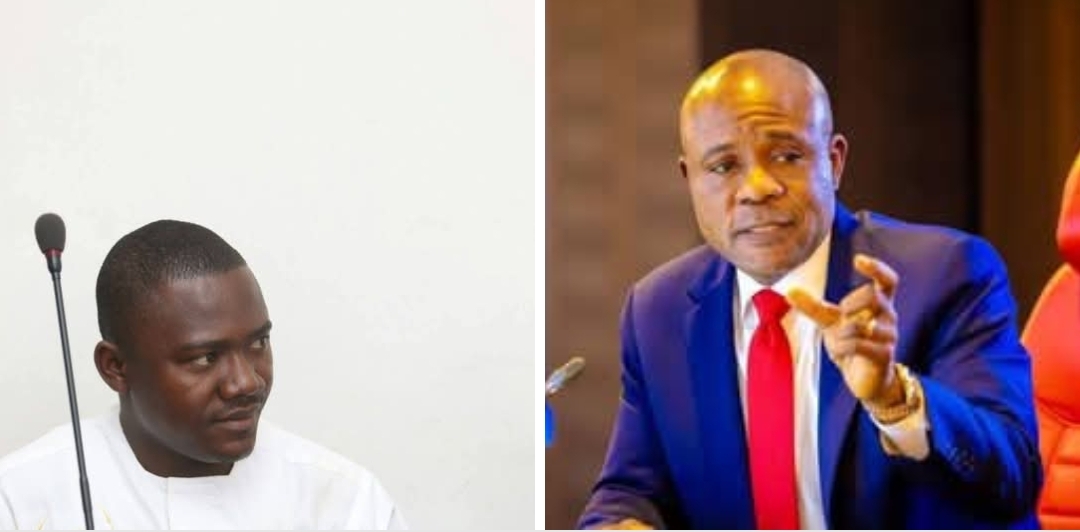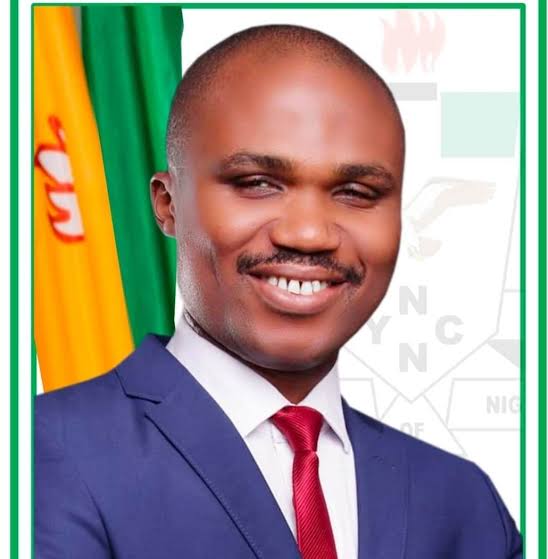Happy Birthday To A Genial Genius @83: A Man of the People – His Excellency, Gen. Ibrahim Badamasi Babangida GCFR, Former President of Nigeria.
General Ibrahim Badamasi Babangida (born 17 August 1941) popularly known as IBB, is a Nigerian politician and military general. He was military President of Nigeria from 1985 until he stepped aside in 1993. He also was the Chief of Army Staff from January 1984 to August 1985.
Humphrey Onyima, the CEO of Leadership SCORECARD Magazine described IBB as a “national enigma, a colossus of knowledge and leadership capacity, whose contributions to the development of national infrastructures and various government institutions, as well as human capital development in Nigeria, can never be overemphasised.”



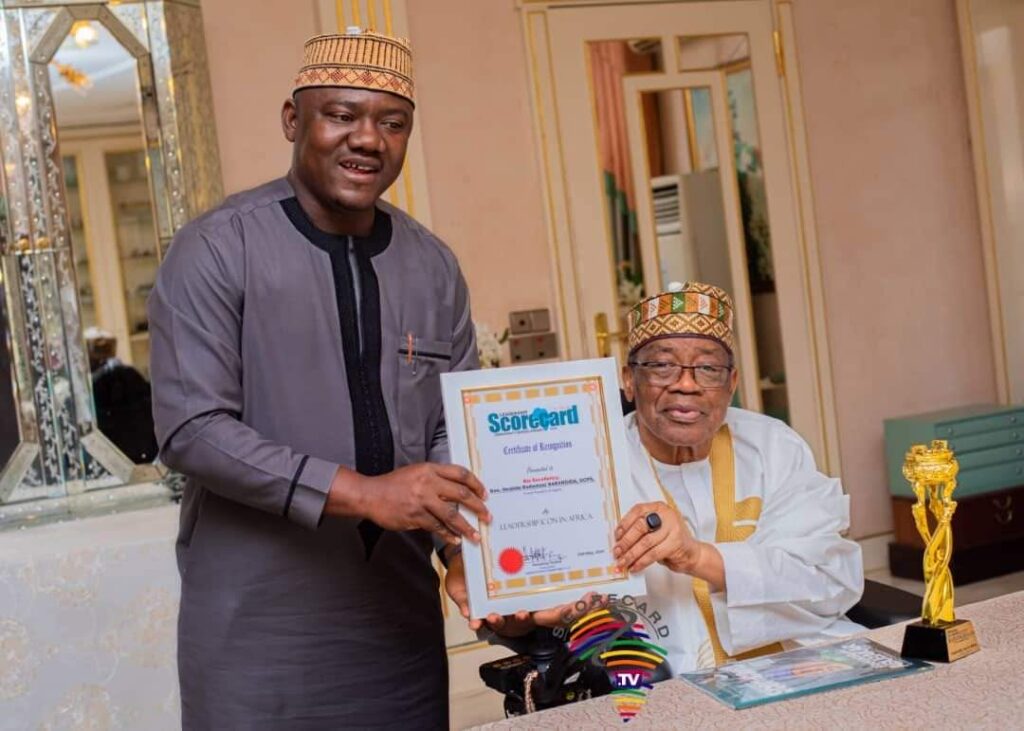
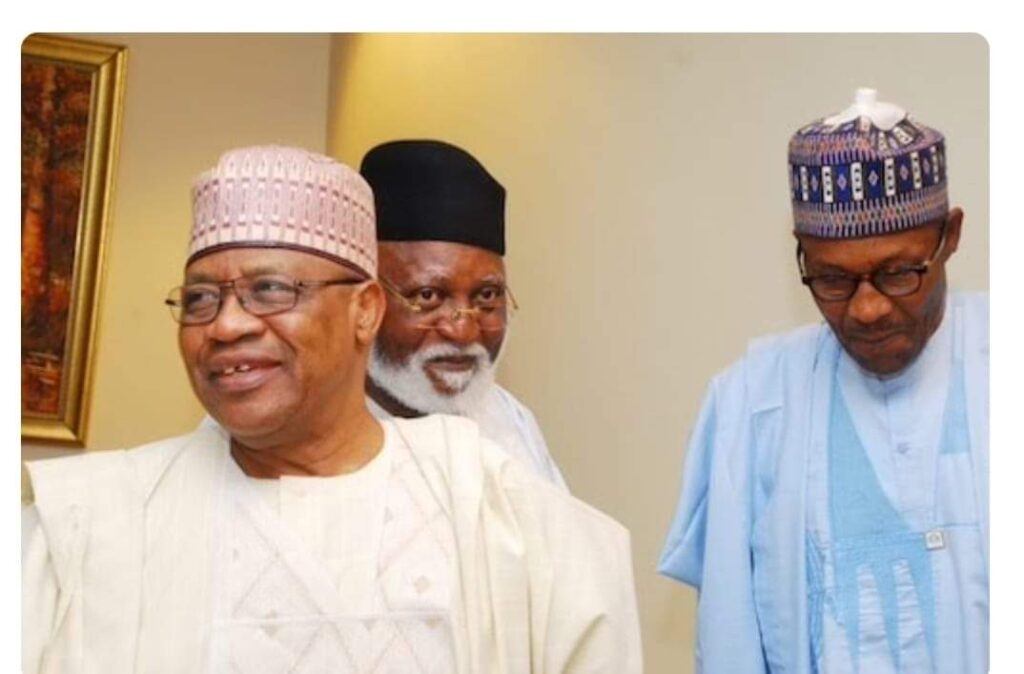
Onyima noted that Babangida, as a military president, realised the vision of Abuja as the Federal Capital City by providing its most vital infrastructures and moving the seat of government from Lagos to Abuja in 1991, among many other achievements.
Babangida’s Achievements in Nigeria as Military President, true reflections of a Born Achiever.
No Nigerian Head of State/President has ever come close to achieving as much as babangida did in his 8 year rule.
It amazes one how so many Nigerians chose to overlook all of these and focus only on June 12, which others before and after him have done worse.
Have a look for yourself IBB’s achievements and tell me any Nigerian leader dead or alive that has achieved as much.
Building a New Ultra Modern City – Abuja
IBB realized the vision of Abuja as Federal capital city by providing its most vital infrastructure and moving the seat of government from Lagos in 1991.
Telecommunications:
Mobile telecommunications, which is so commonplace today in Nigeria, was introduced as a result of the liberalization of the telecom industry by the Babangida administration, an initiative that over the years has made massive impact on the Nigerian economy.
Privatization:
The privatization of the broadcast industry, the licensing of private universities and airlines; the liberalization of the banking industry, including the establishment of community banks (now micro-finance institutions), rank among his best legacies.
Economic Policy:
The Babangida economic policy was predicated most importantly on the need to reverse the downward trend of the economy and arrive at a realistic exchange rate for the naira. The Structural Adjustment Programme (SAP) was a necessary strategy to achieve economic recovery. It was not a capitulation to the dictates of the World Bank and IMF, but a critically-considered plan aimed at providing the platform for successfully recapturing the inflationary trend within a stipulated period of economic emergency. Deregulation, privatization and economic self reliance were key elements in the policy thrust. In the process most of the poorly-performing government-owned enterprises were sold off to private investors. The new policy also did away with the regime of import licensing which in turn allowed the entry of essential commodities into the country, thus ending the long and tiring queues, which Nigerians, for some years, had to endure for food.
Rural Development
Rural development was a very key aspect of the Babangida regime’s economic plan for Nigeria. Approximately 90,857.40 kilometres of feeder road were constructed, thus opening up hundreds of rural communities to the rest of the country for the first time; electricity, water supply and improved health services reached many more rural folk than ever before. Most of those projects were implemented by DFRRI the Directorate of Food, Roads and Rural Infrastructure, an agency created by the Babangida administration.
Gender Equality:
The Babangida administration was the first to implement a gender sensitive agenda. It created a National Commission for Women that later became the Ministry of Women Affairs. Many women were appointed to key positions in national institutions, among which was the first female vice-chancellor of a Nigerian university; and women occupied strategic portfolios in the Federal Cabinet for the first time. The Better Life for Rural Women, a programme which was anchored by the late First Lady, Hajiya (Dr.) Maryam Babangida, was highly successful in mobilizing women to rise to the challenge of economic empowerment.
MAMSER:
MAMSER (Mass Mobilization for Self-reliance, Social Justice and Economic Recovery), was and still remains the best ever exercise in political re-orientation undertaken by any administration in Nigeria. Its central goal was to canvass nationwide support for the Babangida administration’s Political Transition Programme and to promote self-sufficiency in the nation’s economy.
Youth Employment:
In order to halt the ever increasing rate of unemployment among the youth, the Babangida administration created the National Directorate of Employment (NDE) in 1987. Its main task was to alleviate their suffering and provide them with the necessary skills to be self-employed. By 1997 nearly 107,000 youths had received the benefits of this initiative, and many more still do.
Consultative Government:
Despite heading a military regime President Ibrahim Babangida ran the most consultative administration ever in the annals of Nigerian history. Before deciding on the IMF loan, the issue was subjected to a nationwide public debate. When the people gave a resounding NO verdict Babangida went along with their wishes and called off further negotiations. The commencement of the Political Transition Programme in 1988 was also preceded by a nationwide quest to find the right political system for the nation. Conducted by the Political Bureau to a highly enthusiastic participation by the public, the debate produced very concrete suggestions for the establishment of a more balanced and united Federation, and the key elements distilled there-from served as the template for the subsequent structural and constitutional realignment of the Nigerian nation.
National Unity:
The Babangida administration, conversant with the geo-politics of Nigeria, particularly the fears of ethnic domination and marginalization, sought to correct the perceived structural imbalances of the Federation by the creation of more states. Eleven states of Nigeria, two of which were born in 1987 (Akwa Ibom, Katsina) and the latter in 1991 (Abia, Anambra, Delta, Jigawa, Kebbi, Kogi, Osun, Yobe and Taraba); and over 200 new Local Government Areas, owe their existence to this August effort.
Foreign Policy:
Under the Babangida administration Nigeria demonstrated to the world its capacity to play the highest leadership role in African affairs. The formation of the West African Peace Monitoring Force, ECOMOG (a Babangida initiative), anchored by bold and heroic Nigerian troops, brought peace to war-torn Liberia and Sierra Leone, an achievement that further cemented the role of Nigeria as the great protector and promoter of international peace.
Other Notable Reforms and People-Oriented Programmes
Abrogation of Decree No 4 (Protection of Public Officers Against False Accusation Decree) 1984
Abrogation of import and export licencing regime
Dissolution of Nigerian National Supply Company
Abolition of commodity marketing boards
Elimination of price control
Reduction of import duties on newsprint
Ban on the importation of rice
Ban on importation of wheat
Establishment of the National Planning Commission
Institutionalizing Central Bank autonomy
Establishment of the Nigerian Export Import Bank (NEXIM)
Deregulation of capital and financial markets
Establishment of the Nigerian Deposit Insurance Corporation (NDIC)
Establishment of National Economic Reconstruction Fund (NERFUND)
Abolition of fixed exchange rate for the naira
Establishment of the Peoples Bank
Licencing of more banks and finance houses
Introduction of community banking system
Introduction of bureaux de change
Establishment of stable tariff regime
Introduction of civil service reforms
Establishment of the Political Bureau and conduct of nationwide public debate on the IMF loan
Introduction of two party political system
Introduction of Open Ballot and Option A4 voting System
Introduction of Local Government Reform
Educational sector reform and the Introduction of 6-3-3-4 System
Establishment of more federal Universities and Polytechnics
Establishment of the Technical Committee on Privatization and Commercialization of Public Enterprises under which 55 public enterprises, including nine banks, were privatized through public offers on the Nigerian Stock Exchange
Reform of obsolete colonial laws; and abrogation of law making ‘wandering” an offence
Establishment of the Urban Mass Transit Progamme
Institution of the Primary Healthcare Progamme
Establishment of the National Commission for Women
Establishment of the Federal Environmental Protection Agency
Enactment of Copyright Law and establishment of Copyright Council
Allocation of oil prospecting acreages to Nigerian oil companies
Establishment of the National Agricultural Land Development Authority
Establishment of special supervised Agicultural and Industrial Credit Schemes
Establishment of the Nigerian Export Processing Zones Authority (NEPZA) and the creation of the Calabar EPZ
Conduct of the 1991 National Population Census
Establishment of the Federal Road Safety Corps
Establishment of the National Health Insurance Scheme
Establishment of the National Agency for Food and Drug Administration And Control (NAFDAC)
Establishment Of the Oil Mineral Producing Areas Development Commission (OMPADEC), now the Niger Delta Development Commission
Establishment of the National Boundary Commission
Establishment of National Communications Commission
Establishment of the National Broadcasting Commission
Institutionalizing of the National Housing Fund
Establishment of the National Drug Law Enforcement Agency (NDLEA)
Establishment of Revenue Mobilization, Allocation and Fiscal Commission
Reorganization of Nigerian Police into zonal commands
Establishment of National Guard
Reduction in the size of the military
Reorganization of security services into three arms from the former single Nigerian Security organization, i.e. State Security Service, National Intelligence Agency, Defence Intelligence Agency
Resumption of diplomatic relations with Israel, Establishment of Technical Aid Corps.
Major Projects Completed
Federal Government Secretariat (Phase 1 & 11), Abuja
International Conference Centre, Abuja
Abuja International Airport (Phase 1 & 11)
The Presidential Villa, Abuja
National Assembly Complex, Abuja
The Supreme Court Complex, Abuja
Lagos Third Mainland Bridge
Abuja-Kaduna-Kano road dualization
Itakpe-Ajaokuta-Warri-Ore standard-gauge railway line
Digital telecommunication gateways: Lanlate (North), Enugu (East), Lagos (West)
Onne Fertilizer Plant in Rivers State
Kaduna Superphosphate Fertilizer Plant
Warri Petrochemical plant
Elesa Eleme Petroleum Refinery in Rivers State
Kaduna Petrochemical plant
The Escravos-Lagos Gas pipeline
Jebba and Shiroro hydro-electricity projects
Egbin Thermal Power Station in Lagos
Challawa Gorge Dam
Nigeria House in New York, USA
Ajaokuta Steel Plant (Phase 1)
The Liquefied Natural Gas (LNG) Project, Bonny
The Oso Condensate Plant in Akwa Ibom State
NNPC headquarters in Abuja
Aluminium Smelter Plant in Akwa Ibom State
NigerDock (Africa’s largest dry dock), Snake Island
Nigerian Machine Tools Manufacturing Co., Oshogbo
Military cantonments, Abuja
National Intelligence Agency administration headquarters
Nigerian Security Printing and Minting Company factory, Abuja.
According to Prof. PLO Lumumba, we Africans should learn to stop judging ourselves too harshly. Therefore, before we start judging ourselves, let’s try to do some research and be objective in our analysis, we can’t afford to throw the baby away with the bathe water, no, not at all.
We can’t afford to right off IBB’s achievements as Military President in Nigeria.
After all we have also failed to acknowledge the real hero of June 12, yes, if not for the Transparency of Prof. Humphrey Nwosu, the then Electoral Umpire, nobody will be talking about June 12 today.
So, we must rise up as a people to build stronger Electoral Infrastructures through effective electoral reforms to protect our votes during elections.

